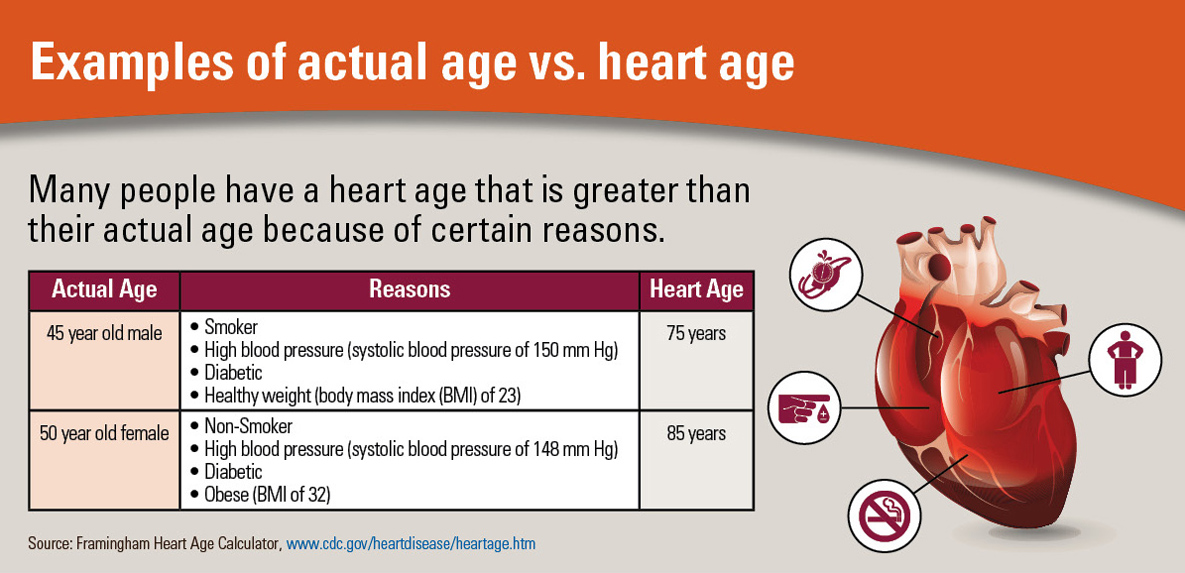How old is your heart?

Most American adults – 3 out of 4 – have a predicted heart age older than their actual age, putting them at higher risk for heart attacks and stroke.
Researchers from the Centers for Disease Control and Prevention estimate nearly 69 million adults between the ages of 30 and 74 have a heart age five years or more older than their actual age. That’s about the number of people living in the 130 largest U.S. cities combined, according to the CDC.
According to the CDC, 1 in 2 men and 2 in 5 women have a heart age five or more years older than their actual age. About 75 percent of heart attacks and strokes are due to risk factors that increase heart age, according to the CDC.
Those risk factors include high blood pressure, cigarette smoking, diabetes and higher body mass index (as an indicator for obesity). A person’s heart age is the calculated age of a person’s cardiovascular system based on their risk factor profile, according to the CDC.
The CDC has added a heart age calculator to its website – a feature adapted from the Framingham Study Heart Age Calculator used by researchers.
The heart age calculator asks for gender, age, systolic blood pressure and BMI. It also asks users if they’re being treated for hypertension, have diabetes or are a current smoker.
From there, it calculates a heart age and shows the person’s 10-year risk compared to normal and optimal risk levels.
The more risk factors the person has, the higher their heart age.
For example, a 50-year-old woman who is obese, diabetic and has high blood pressure has a heart age of 85 years. A 45-year-old man who smokes, is diabetic and has high blood pressure has a heart age of 75 years, according to the CDC.
The CDC estimates American men have an average heart age eight years older and women have an average heart age five years older than their actual age.
